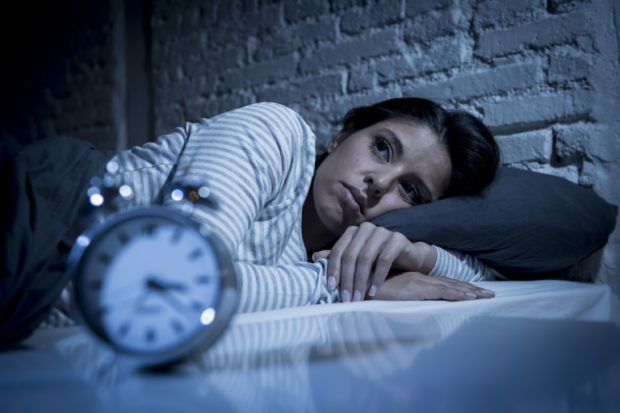Insomnia, depression: Study examines possible impact of COVID-19 on patients’ mental health

Image: OcusFocus/Istock.com via AFP Relaxnews
In order to understand the long-term effects of severe COVID-19 infection, United States researchers have reviewed symptoms in people affected by other forms of coronavirus, notably SARS and MERS.
The meta-analysis of 65 peer reviewed studies and seven pre-prints on the observed psychiatric consequences of more than 3,550 severe infections with SARS (2002), MERS (2012) and COVID-19. The study was limited to cases treated in hospital and therefore does not apply to patients who experienced milder symptoms or were asymptomatic.
The results of the analysis, published in The Lancet Psychiatry suggest that whereas most patients will not suffer immediate mental health effects, certain complications like depression, anxiety, fatigue, and post-traumatic stress disorder (PTSD) could emerge in the months and years that follow hospitalization.
Two studies that systematically assessed common symptoms in a panel of 129 patients hospitalized with SARS and MERS noted various mental disorders such as confusion (28%), low mood (32%), anxiety (35%), impaired memory (34%) and insomnia (42%).
Twelve studies of patients with COVID-19 painted a similar picture with evidence of delirium in 26 out of 40 intensive-care patients, agitation in 40 out of 58 intensive-care patients, and altered consciousness in 17 out of 82 patients who subsequently died.
Six other studies of patients with SARS and MERS also found frequent reports of low mood (11%), insomnia (12%), anxiety (12%), irritability (13%), memory impairment (19%), fatigue (19%), and frequent recall of traumatic memories (30%) over a follow-up period ranging from six weeks to 39 months.
“While there is little evidence to suggest that common mental illnesses beyond short-term delirium are a feature of COVID-19 infection, clinicians should monitor for the possibility that common mental disorders such as depression, anxiety, fatigue, and PTSD could arise in the weeks and months following recovery from severe infection, as has been seen with SARS and MERS”, points out Dr. Jonathan Rogers, a researcher from University College London, United Kingdom, and a co-author of the study. JB
RELATED STORIES:
Not getting enough sleep could increase risk of asthma attacks, says new study
How to sleep better during the COVID-19 outbreak
For more news about the novel coronavirus click here.
What you need to know about Coronavirus.
For more information on COVID-19, call the DOH Hotline: (02) 86517800 local 1149/1150.
The Inquirer Foundation supports our healthcare frontliners and is still accepting cash donations to be deposited at Banco de Oro (BDO) current account #007960018860 or donate through PayMaya using this link.